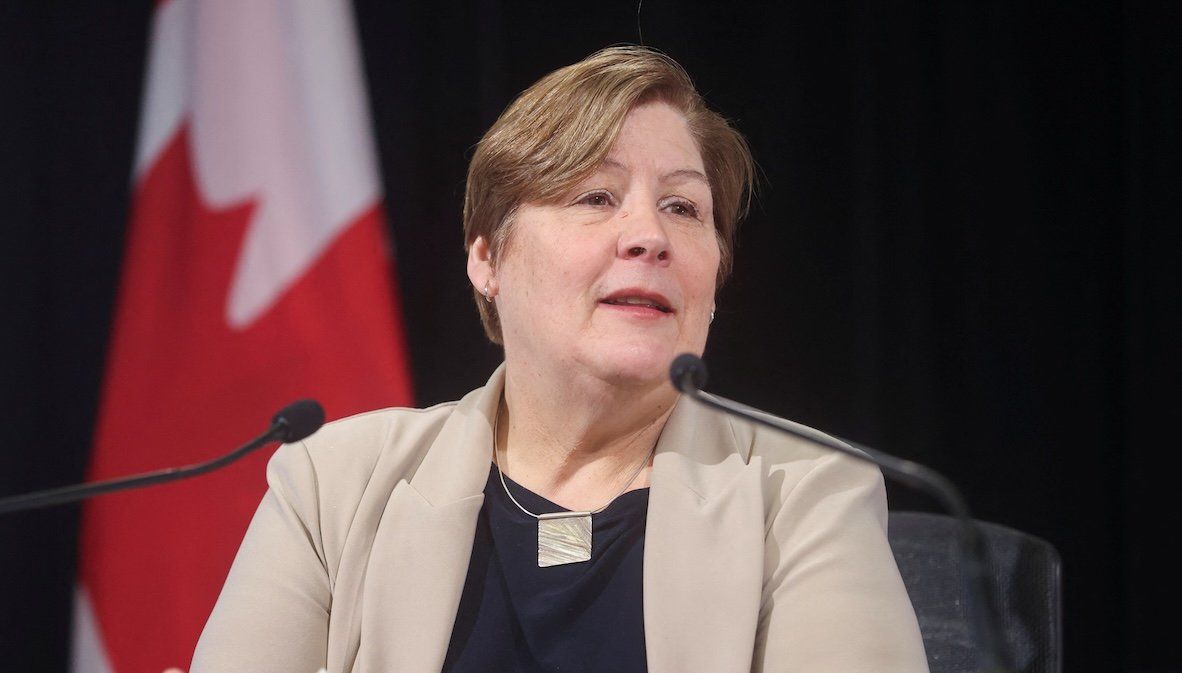Commissioner Justice Marie-Josee Hogue speaks to reporters after the release of the final report of the Public Inquiry into Foreign Interference in Federal Electoral Processes and Democratic Institutions in Ottawa, Ontario, Canada, on Jan. 28, 2025.
“There are legitimate concerns about parliamentarians potentially having problematic relationships with foreign officials, exercising poor judgment, behaving naively, and perhaps displaying questionable ethics,” writes Justice Marie-Josée Hogue, who nonetheless found no treason or conspiracy.
She did find, however, that foreign interference, including the spread of mis- and disinformation, is a “major risk to Canadian democracy” that must be addressed. She writes that “information manipulation” is, in fact, “the single biggest risk to” democracy in Canada.
The report includes a slew of recommendations (51 in fact) for combating foreign interference, including better information-sharing protocols, smoother cooperation across orders of government, that party leaders get top-secret security clearance soon after becoming leader – something Conservative Party leader Pierre Poilievre has refused to do – and tighter rules for leadership elections to limit votes to Canadian citizens and permanent residents.